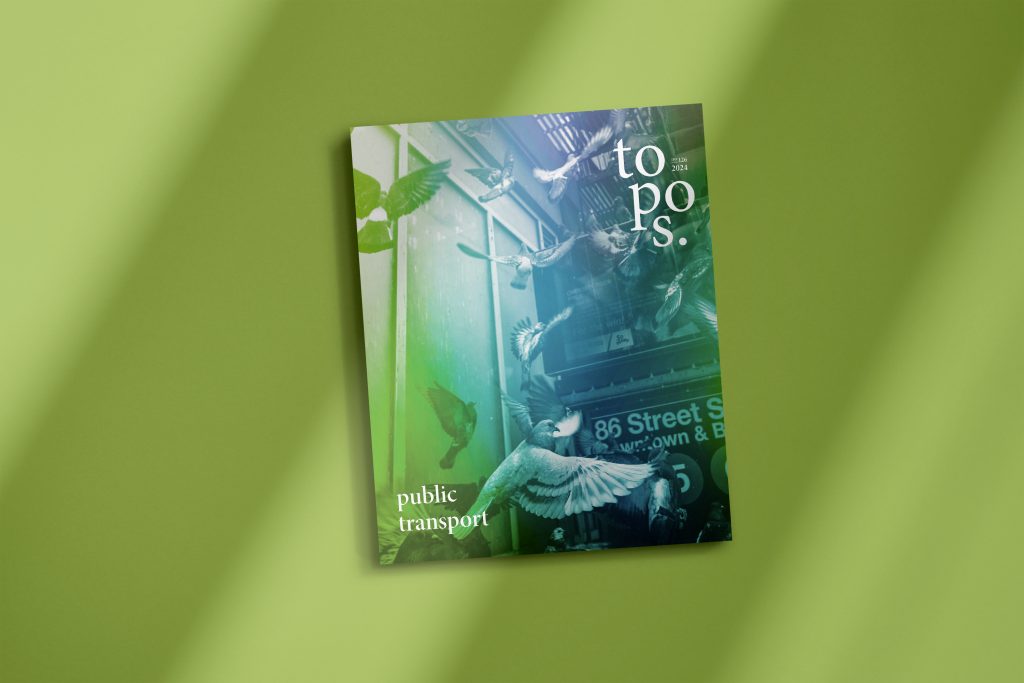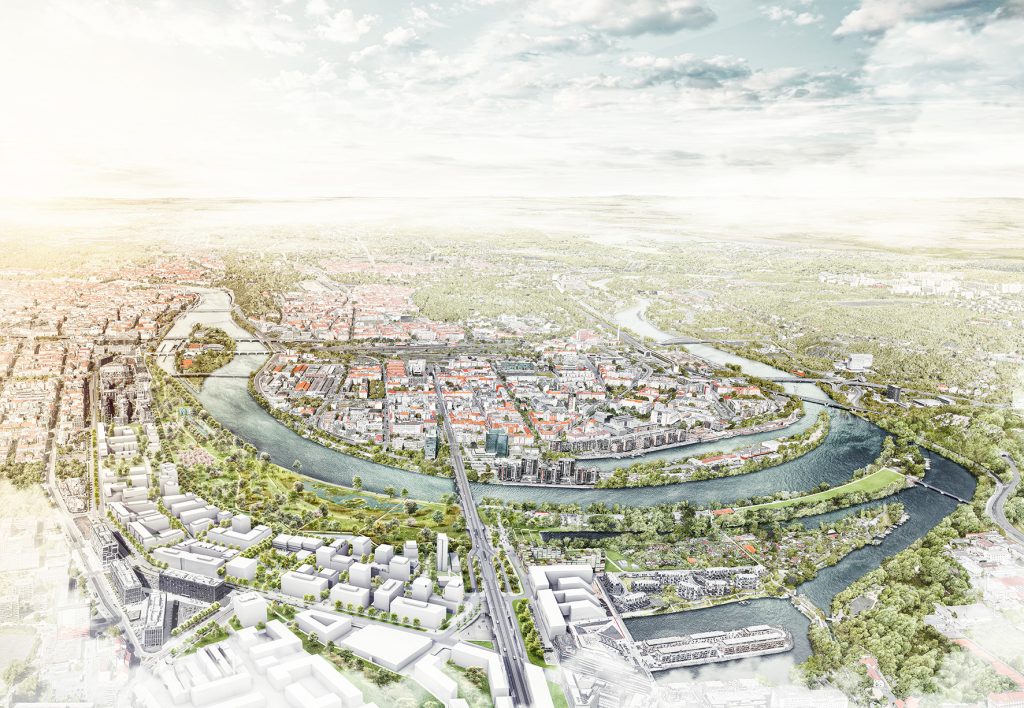
Geologist Werner Bätzing pleads for a rethinking of the relationship between urban and rural areas that leads to new perspectives.
Billboard
Skyscrapper
Halfpage
In today’s post-digital age, our economy and society are extremely unstable and small disturbances can lead to serious problems that ultimately endanger the entire system. The coronavirus – defined as a disturbance – is currently showing us how quickly a local epidemic can turn into a pandemic that threatens the future of both the economy and society, and thus our ability to live together. What comes next, and when will it happen? Perhaps a new perspective of the city and the countryside will emerge.
Our society today is characterised by the fact that it is highly differentiated and specialised at all levels, i.e. the economy, infrastructure, our way of life and leisure. At the same time, a great many activities are broken down into their individual parts, which are often scattered around the globe. These parts have to be held together day after day by a huge movement of goods and people and a vast exchange of data and information. The very high efficiency of this system, which leads to low costs for both producers and consumers but puts a great burden on the environment and the general public, is inextricably linked to fundamental instability. This instability is especially evident in four main areas:
1.) The extreme spatial divisions of labour, combined with just-in-time production (no warehousing), mean that a problem occurring anywhere in the world that disrupts production, traffic and/or the flow of data immediately affects the entire global economy as well as personal leisure time behaviour – problems in a remote region can easily have a global impact.
2.) Our lives and economy are completely dependent on electricity due to technological development and digitisation – without electricity there is no transfer of information, no jobs and no transport. Small disturbances in the power supply or targeted hacker attacks can quickly paralyse our lives.
3.) In order to increase the efficiency of economic activity and the use of infrastructure, and to minimise costs, numerous reserves (capacity reserves in hospitals and factories, and personnel reserves for emergencies and breakdowns of all kinds) have been done away with in the last 20 years in accordance with neoliberal thinking. As a result, the economy and society are very poorly prepared for any exceptional situations.
4.) The financial sector lives entirely from positive expectations for the future, because the repayment of existing loans depends on the continuation of future economic activity in a positive direction. If this is called into question, however, the loans very quickly become “bad loans” and the financial collapse that accompanies this can easily affect the entire economy.
Small disturbances in any of these areas can quickly lead to serious problems, which in the end can even endanger the entire system. Triggers can be natural disasters, accidents, wars, terrorist attacks, social conflicts, environmental problems, economic crises or pandemics. With the coronavirus, we are currently seeing how quickly a local epidemic can turn into a pandemic that threatens the future of our economy and society.
“It will become necessary to review and modify the four factors of instability.”
It is not yet possible to predict how long this will last. However, everything indicates that it will continue to preoccupy us beyond 2020 and that living together as before corona will not be possible for some time to come. In the long term, this crisis may lead to central elements of our current economic activity and life – extreme specialisations, global divisions of labour, great distances between home and work, mobile recreation – being called into question. In such a situation, it would be reckless to concentrate solely on fighting the coronavirus and then to want to return to “life as usual”. Instead, it will become necessary to review and modify the four factors of instability mentioned above precisely because of their pronounced instability.
“We should rethink the relationship between urban and rural areas.”
What we should also rethink is the relationship between urban and rural areas: In light of the coronavirus, the “progressiveness” of cities, which are very highly specialised and globally networked, is being called into question to some extent, while at the same time the countryside’s previous “backwardness” suddenly appears to be quite positive in a new way. And a rural area that does not function as an extension of the city, but is decentralised and characterised by strong regional economic structures, could become an important factor of stability for cities in times of crisis.
“Perhaps the corona crisis will help put an end to the current lack of appreciation of rural life.”
However, this reassessment of urban and rural must not be allowed to lead to a situation in which the countryside is only seen as positive and cities only as negative – such complete shifts from one extreme to the other have occurred time and again in the past, especially during times of crisis. They do no justice to the reality of the city and the countryside as two different but equally valuable forms of life that complement each other, however. Perhaps the corona crisis will help put an end to the current lack of appreciation of rural life and to ensure that our society also develops a new urban-rural relationship in the search for more stable forms of life.
This opinion piece can be found in topos 111. Get your own copy here.












